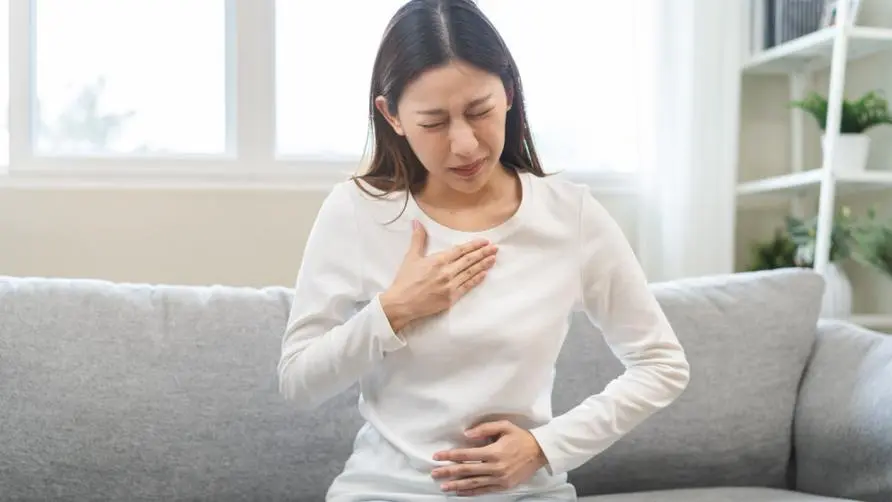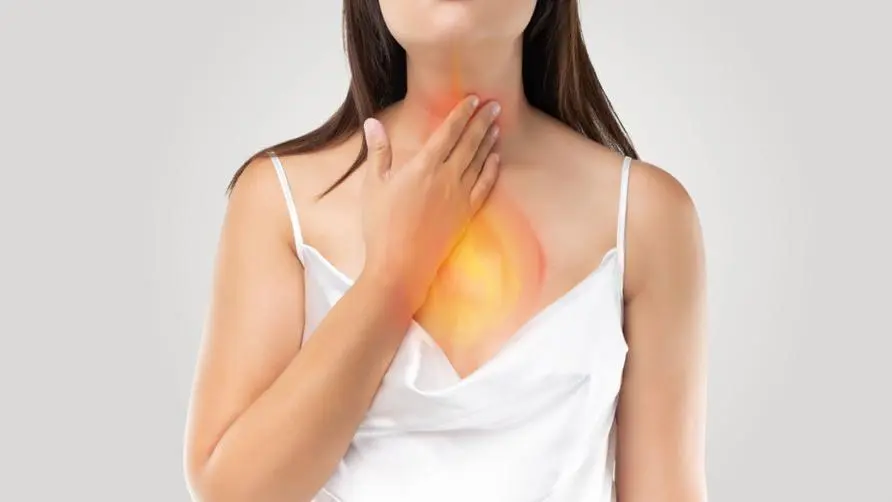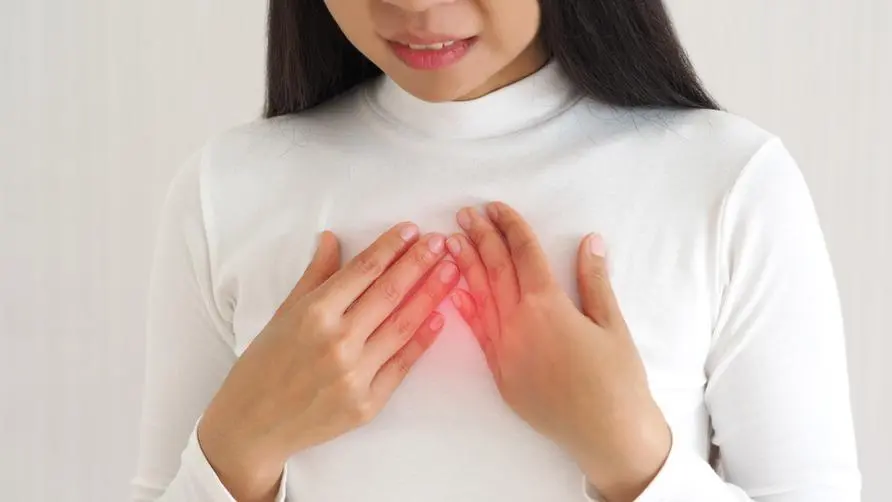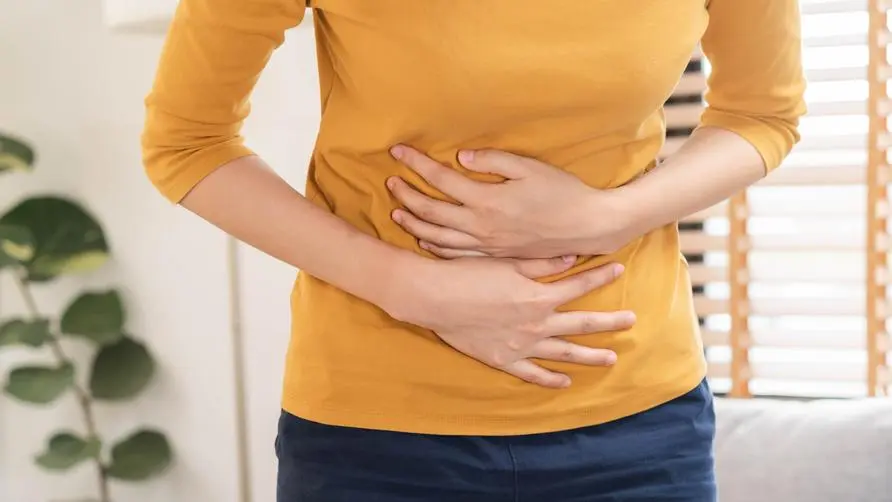Is Gastroesophageal Reflux Real or Fake? Doctors reveal the difference between typical and atypical symptoms! How to choose endoscopic surgery?

What are the different causes of gastroesophageal reflux? 1/4 Taiwanese people suffer from acid reflux?
Due to factors such as lifestyle, eating habits, and Helicobacter pylori infection, the number of gastroesophageal reflux disease (GERD) continues to increase. In recent years, studies from various countries have even shown that gastroesophageal reflux has surpassed peptic tract ulcers and become the most common disease in the digestive tract system. The most common diseases. The prevalence of gastroesophageal reflux in Taiwan is estimated to be between 6% and 25%. In addition to the typical symptoms that affect life, gastroesophageal reflux is also thought to be associated with throat inflammation, asthma, chronic cough, and may even cause Barrett’s disease due to repeated erosion of the esophagus. Barrett’s esophagus, which increases the risk of esophageal adenocarcinoma.
Dr. Wu Wenjie, director of the Gastroesophageal Reflux Center of Yuanrong Hospital, said in an exclusive interview with “healthorn” that gastroesophageal reflux is the most common gastrointestinal problem among the young generation. About 1/4 of Taiwanese people suffer from gastroesophageal reflux. The main causes of gastroesophageal reflux are related to three major factors: too loose cardia, excessive pressure, and oversensitivity of the esophagus or nerves. The cardia is located at the junction of the esophagus and the stomach. If the lower esophageal muscles are weak and the cardia cannot be completely closed, reflux may occur. In addition, a loose diaphragm will also cause the cardia to fail to close tightly, resulting in reflux when lying down or exerting force.
Dr. Wu Wenjie pointed out that the causes of excessive stomach pressure include: flatulence, indigestion, poor eating habits, excessive food intake, excessive fluid intake, and overeating. If the abdomen is exerted too much during strength training, the increased abdominal pressure may also cause gastroesophageal reflux. For obese people, excess abdominal fat can squeeze the stomach and cause reflux problems.
As for gastroesophageal reflux caused by “too sensitive”, it is also very common. Dr. Wu Wenjie said that many patients with “refractory gastroesophageal reflux” may not see improvement after taking medication for more than 2 months, or they may not be able to get rid of drug dependence, or even become addicted to drugs. no response. Most of these patients have esophageal sensitivity, overly sensitive autonomic nerves, loose doors, high pressure and other factors, which lead to long-term gastroesophageal reflux problems.
Gastroesophageal reflux symptoms? What is the difference between typical and atypical symptoms?
The causes of gastroesophageal reflux also vary among different age groups. Dr. Wu Wenjie pointed out that from a clinical point of view, the cause of gastroesophageal reflux in young people is related to gastric bloating and indigestion caused by overeating, excessive intake of fried foods, and sweets. Middle-aged people may be unable to digest due to life stress, socializing, drinking, and excessive intake of complex foods. In the elderly, it is more commonly related to diaphragm degeneration, esophageal degeneration, or medication use.
In addition, the proportion of Helicobacter pylori in the human body in Taiwan is close to 50%. Helicobacter pylori may cause indigestion, flatulence, acid reflux, and is related to the risk of cancer. In addition, Helicobacter pylori cannot be eliminated by the human body and needs to be treated with antibiotics. As long as Helicobacter pylori infection is found, coupled with chronic gastritis and other problems, early treatment is recommended.
Dr. Wu Wenjie explained that the symptoms of gastroesophageal reflux can be divided into “typical” and “atypical”. When typical symptoms occur, more than 90% may be gastroesophageal reflux. Typical symptoms include: heartburn, chest burning or stuffiness, and obvious gastric acidity. Reflux of food in the throat. Patients with typical symptoms often see improvement soon after taking the medication. As for atypical symptoms such as: non-psychogenic chest pain, chronic cough, foreign body sensation in the throat, feeling stuck when swallowing, hoarse voice, headache, dizziness, bad breath, etc., it is recommended to seek examination from a specialist based on the symptoms and confirm that there is no related cause. Then go to the gastroenterologist to diagnose whether it is related to gastroesophageal reflux.
Diagnosis and treatment of gastroesophageal reflux? How to choose endoscopic surgery?
In recent years, the diagnosis and treatment of gastroesophageal reflux have made great progress. Dr. Wu Wenjie explained that in the past, “transnasal endoscopy” was used to diagnose gastroesophageal reflux. Just like a nasogastric tube enters the esophagus from the nasal cavity, the patient must wear a machine to continuously detect the disease. The 24-hour test is only covered by health insurance. The new examination tool is the “Wireless Gastric Acid Detection Capsule”. The capsule can be placed on the esophagus near the cardia through a gastroscope to effectively monitor the gastric acid status for 48 to 96 hours to determine whether it is false reflux. During this period, the patient can continue to live a normal life without any symptoms. Influence.
Dr. Wu Wenjie said that in the past, the traditional treatment of gastroesophageal reflux was mainly medication and lifestyle improvement. Now, if it is “refractory gastroesophageal reflux”, it can also be treated through endoscopic surgery. There are three main types of endoscopic surgery for gastroesophageal reflux. The first type is thermal radiofrequency gastric cardia tightening (Stretta), which uses the principle of electrocautery acupuncture to heat and inflame the lower esophageal sphincter to stimulate growth and strengthen cardiac closure. of strength.
The second surgery is modified anti-reflux mucosal resection (ARMS), which uses a gastroscope to remove the tissue above the cardia and then suture it to reduce the risk of bleeding and perforation. The third method is anti-reflux mucosal cauterization (ARMA), which also uses a gastroscope to directly cauterize the cardiac mucosa. It can achieve the same effect, but care must be taken to control the depth of cauterization. In comparison, the recovery time of modified anti-reflux mucosal resection is faster, while the recovery and scarring time of anti-reflux mucosal cautery is about 2 months.
Dr. Wu Wenjie pointed out that the structure of the gastric cardia must be considered in order to choose a suitable surgical method. If the distance between the cardia is small, thermal radiofrequency gastric cardia tightening surgery can be considered. If the distance between the cardia is too large, it is suitable for modified surgery or combined use. And not all patients are suitable for endoscopic surgery. If the gastric hernia is severe, it will still need to be treated by a surgeon through fundoplication.
How to prevent recurrence of gastroesophageal reflux? Adjustment of diet and rest is key
Although more advanced endoscopic surgery options are available for gastroesophageal reflux, lifestyle and eating habits are still the fundamental factors that affect whether gastric acid reflux occurs. Dr. Wu Wenjie reminded that no matter whether it is drug treatment, endoscopic surgery or surgery, there is no guarantee that gastroesophageal reflux will not recur after surgery. You should still get rid of wrong habits such as overeating, drinking too much, and eating fried foods in order to achieve good health. Let the surgical effects last longer.
Dr. Wu Wenjie said that to avoid recurrence of gastroesophageal reflux, try to avoid foods that are too sour such as lemons, pineapples, and kiwi fruits in your daily diet. Adopt the dietary principle of “separating rice from water” to reduce excess soup and water. If you have gastroesophageal reflux problems, you should drink less sparkling water and avoid smoking and alcohol. Obese people are advised to lose weight appropriately. Coffee should be consumed in moderation based on individual circumstances, but additives such as sugar and creamer are not recommended.
Dr. Wu Wenjie reminds that medical treatment is convenient in Taiwan. It is recommended that people over the age of 40 undergo regular health examinations and gastroscopy. Even if they have no symptoms but have smoked, drank, or eaten betel nut for more than 10 years, the risk of throat cancer, oral cancer, and esophageal cancer will increase significantly. , be sure to kick bad habits and get screened regularly. For people with gastroesophageal reflux, in addition to proper treatment, it is also recommended to undergo a gastroscopy every 1 to 3 years to confirm whether there is a risk of esophageal stricture or Barrett’s esophagus.
Extended reading:





